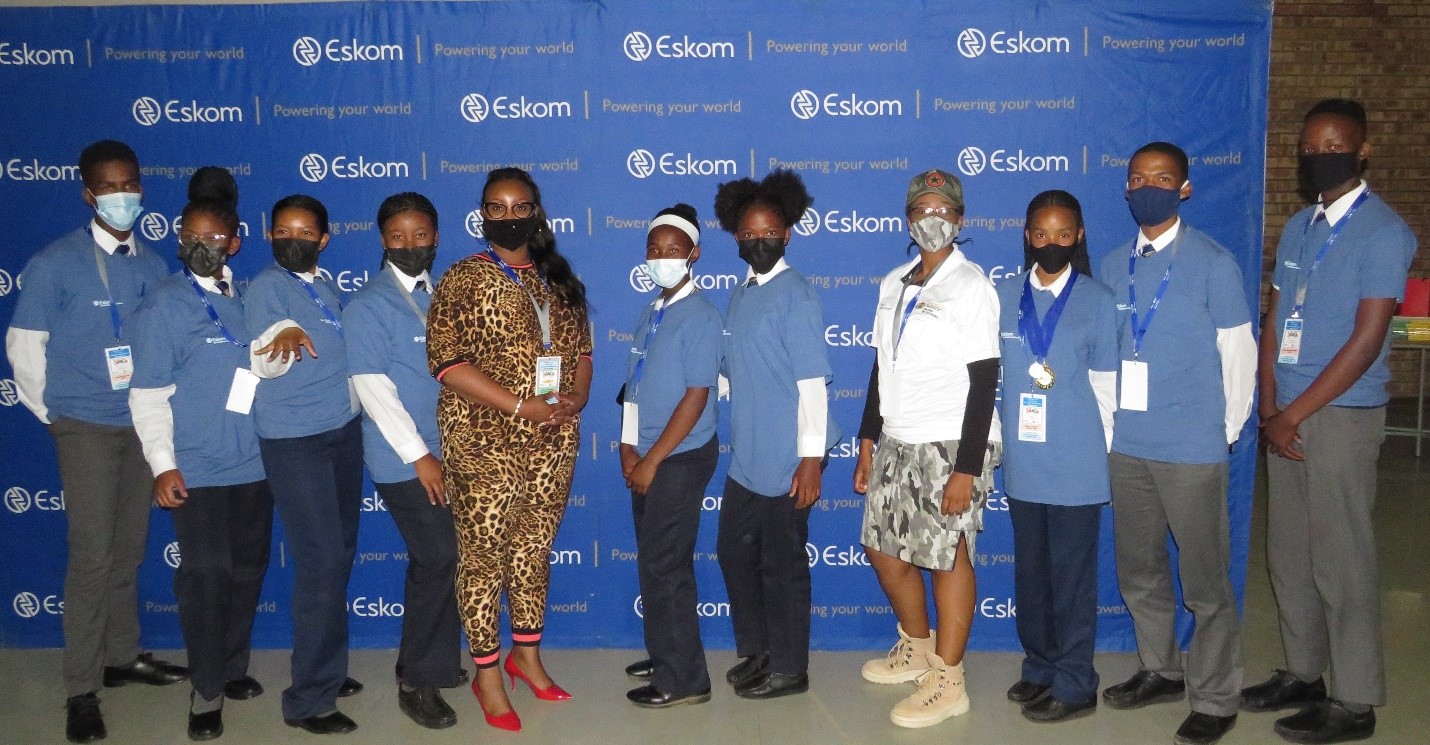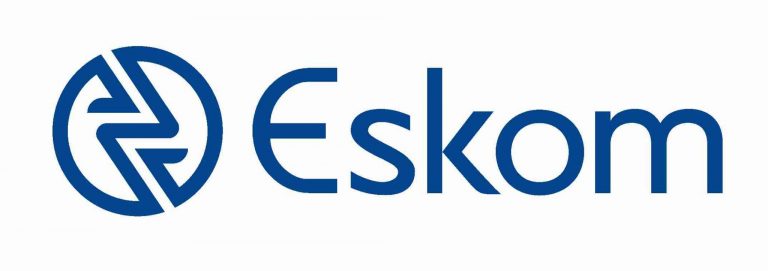Eskom recognises top high school learners at the Free State Mathematics Competition
18 November, 2021: The Eskom Development Foundation has announced the 2021 winners for its distinguished annual Free State Maths & Science Competition.
Winners were announced following the provincial finals held at the University of the Free State on 23 October 2021. The competition begins at school level before moving on to the cluster, district, and eventually, provincial finals, targeting Grades 8 to 11 learners from across quintile 1-5 high schools across the province. The top performers were selected in each round, with elimination rounds as the competition progressed. Winners received a range of prizes, including books for their schools,, tablets, vouchers, power banks, laptops, and cash vouchers.
Launched in 2017, the Free State Maths & Science Competition is a partnership among the Eskom Development Foundation (ESDEF), the Free State Department of Education and the Kagiso Trust, and it forms part of Eskom’s drive to improve education through the provision of resources and training.
Overall winners of the 2021 Eskom Free State Maths & Science Competition:
Tsholofelo Kobue, Welkom High, Welkom – Grade 11, the overall competition winner took home a roving trophy, a laptop (R6 500), a book to the value of R2 000, a R3 000 voucher, a framed certificate, and a 32GB USB.
Sage Coetzee, Sand du Plessis High, Bloemfontein – this Grade 8 learner won earphones (R400), a power bank (R500), a R500 voucher, a framed certificate, a gold medal, and a book.
Kenneth Moalusi, Meloding High, Virginia – Grade 9: he walked away with earphones (R400), a power bank (R500), a R500 voucher, a framed certificate, a gold medal, and a book.
Andrea van der Westhuizen, Jim Fouche High, Bloemfontein – Grade 10: won earphones (R400), a power bank (R500), a R500 voucher, a framed certificate, a gold medal, and a book.
Winners receive a book for their current grade for revision for the end of the year assessment, as well as a book for their next grade. The book is in addition to the textbook they currently have at school. This book will improve learners’ problem-solving abilities. As a result of the book, teachers will also be able to improve their assessment practices. The books will help teachers to improve their pedagogic content knowledge, since the content is structured to allow all learners access.
The competition questions focus on conceptual knowledge, the application of knowledge to new situations, problem solving, reasoning, communication and creative thinking. The questions are not necessarily “difficult”, but simply address a dimension of mathematics to which our learners are rarely exposed in the classroom. These questions also prepared our learners for the end of the course exam.
Concepts covered in the test:
- Extend and investigate geometric and numerical patterns, looking for relationships between numbers;
- Create equations to describe problem situations;
- Equations in two or more unknowns, one of which is linear and the other quadratic.
- Solve geometric problems using the relationships between pairs of angles described above.
- Calculate unknown sides and angles in triangles and quadrilaterals.
- Problem solving and graphing using the prescribed functions. Average gradient between two points.
We received entries from 108 800 entrants this year across all school levels, a huge increase from the 71 240 entries in 2019. This upward trajectory in the participation of learners affirms the programme’s impact in the province. The growth is encouraging,” said Cecil Ramonotsi, Chief Executive Officer for the Eskom Development Foundation.
At Eskom, we look at this initiative as not only being an investment in maths and science – but also a critical component of our broader efforts to motivate young people to pursue careers in the fields of science, technology, engineering, mathematics and innovation (STEMI),” said Nthato Miyuki, Group Executive: Government and Regulatory Affairs at Eskom.
“In its humble way, the Free State Maths & Science Competition is part of a nationwide effort to improve the lives of South Africans. Simply put, investing in STEMI can be an economic enabler for marginalised and disadvantaged youth. In addition to increasing interest in mathematics, the competition aims to develop analytical problem-solving skills through participation in a challenging, dynamic competition. Students are required to demonstrate conceptual knowledge, knowledge applied to new situations, reasoning, communication and creativity,” Cecil Ramonotsi concluded
Ends
For media enquiries, please contact:
Madelline Kadzinga
Foundation Project Marketing and Communication Manager
Eskom Development Foundation
Telephone: 076 724 5795
Email: [email protected]
Find us online:
Facebook: www.facebook.com/EskomDevelopmentFoundation
Twitter: @eskomfoundation
Instagram: @eskomfoundation








